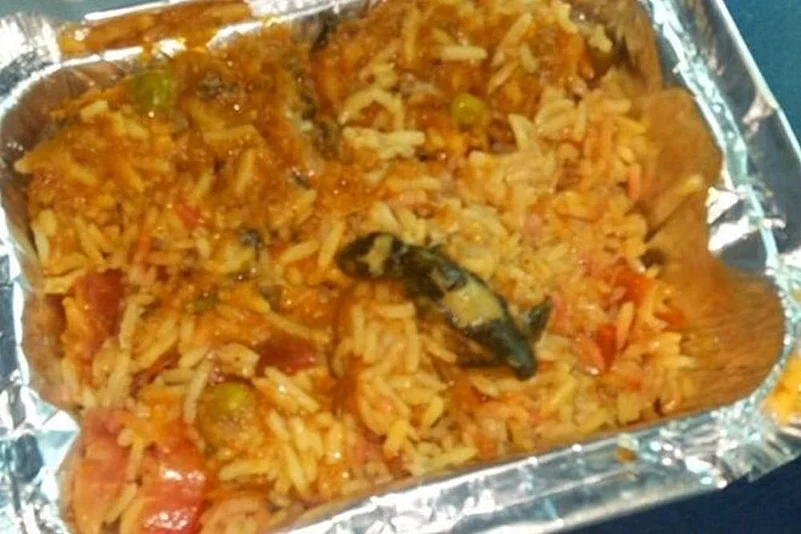In the last few years, the 163-year-old Indian railways has witnessed many changes in its services – from roping in private caterers such as TravelKhana, which allows passengers to buy meals of their choice a wide variety of restaurants on its platform, to working on setting up a five-star waiting lounge at New Delhi station.
But one thing that remained a matter of concern for the world’s largest railway service is the poor quality of food it serves to its passengers.
Last month, the Comptroller and Auditor General (CAG) hit out at Indian railways for serving food “unfit for human consumption” such as recycled, contaminated and expired items and unauthorised water brands. This came despite Domino’s Pizza, in March, announced that it would double its e-catering service with the railways in the coming months after receiving a positive response from the IRCTC for making available “hygienic, fresh and quality food” to its passengers across tier-1, tier-2 and tier-3 Indian cities.
Advertisement
The CAG report was followed by media reports that a lizard was found in a meal served on the Poorva Express after a passenger had ordered a vegetarian biryani.
Every time such incidents come to light, the railways does a routine job: portentous announcements on termination of contracts, imposition of fines or the blacklisting of the firms.
Reacting to the complaints, railway board chairman AK Mittal has asked passengers to bring their own food, at least till railway kitchens are revamped. This, the board says, may take more than a year.
From Mamata Banerjee to Mallikarjuna Kharge, Dinesh Trivedi – or the incumbent Suresh Prabhu – why have all railways ministers failed to tackle the on-board catering business?
Advertisement
According to a Hindustan Times article, one of the key problems is “cartelisation”. “There have been several policy changes (2005, 2010 and 2017), but these have either been partially implemented – or not executed at all. The same set of caterers – or their front companies – have continued to monopolise the business; finding ways to circumvent policy guidelines. It has often been the case that a firm blacklisted in one railway zone has found work in another zone,” the article says.
The CAG report states, besides improper hygiene, that "shelf-life expired packaged and bottled items" were offered for sale at a maximum retail price higher than the open market.
In response, the railway ministry said disciplinary action has also been taken against 21 railway officials and more than 40,000 inspections have been done by railway officials to improve catering services.
The Food Safety and Standards Authority of India (FSSAI) also raised concerns on food hygiene on trains and asked the railways to redesign coaches so that food served on trains are not stacked next to the lavatories, reported The Hindu.
“Ever since the railways was set up, catering on trains and at railway stations was entrusted to private contractors. The selection of vendors from among the numerous applicants was done by a panel very similar to a job interview,” a top catering official told The New Indian Express.
Advertisement
He, however, added that there was no transparency in the process and the same contractors kept getting the contracts repeatedly. In 2000, the railways decided to change the selection process by bringing about transparency.
In 2010, then railway minister Banerjee wanted the IRCTC to hire at least 60,000 catering staff and run the whole catering business within the railways without contracting it outside, the official said.
“IRCTC expressed its inability to manage the show by hiring such large numbers and the railways took back the catering responsibility,” he told the newspaper.
The ministry announced in the 2016-2017 railway budget that the IRCTC will take over catering responsibility in a phased manner. The new catering policy announced in February 2017 states that the food will be prepared at state-of-the art base kitchens and distributed through service providers from the hospitality industry. Cooking and distribution have been delinked to professionalise it.
Advertisement
Experts believe the standard can be improved if only reputed vendors are allowed to serve food in trains. Penalties should be high on vendors defaulting and poor quality of food in Indian railways. And menu cards should be placed in coaches on display and the food should not be priced high.




















